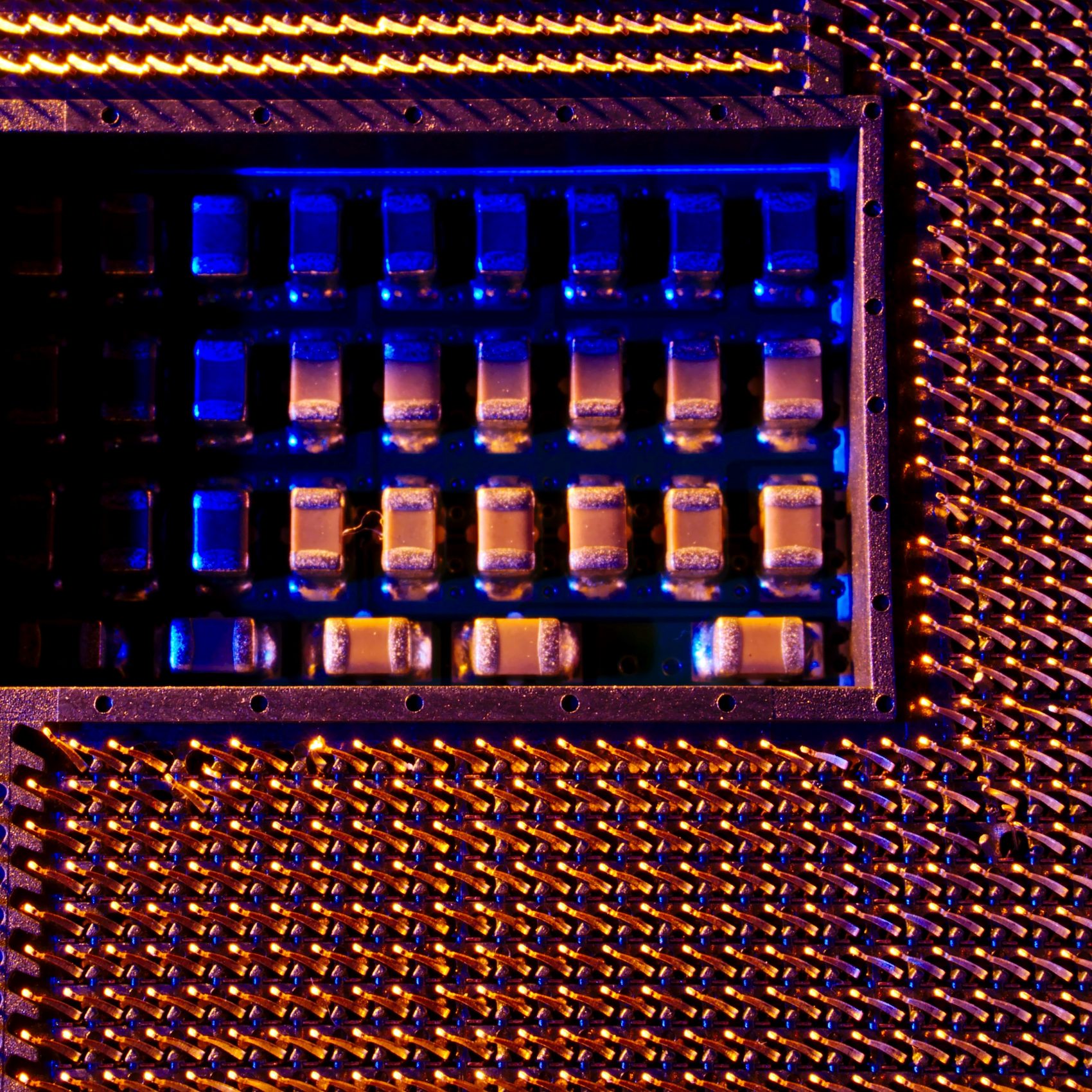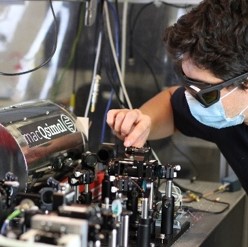decide game:
quantum technologies
Group 2 – Participant 5
Story cards
Read all the cards from this category, choose the one that looks more interesting to you and explain it to the rest of the group.
david díaz
Story Card 1
I am a historian and a university lecturer.
I think many people put a lot of pressure on scientists to quickly turn their research into applications that benefit society. I think we should not demand results so soon. We should be patient and continue to foster research.
For example, while the theoretical principles on which lasers are based were known back in 1917, it was not until the 1960s that we had the first prototype. It took many more years for it to become an essential technological tool.
laura lorenzo
Story Card 3
I work for a company that has always been committed to research and innovation as a form of economic growth. Investing in research is investing in the future.
We have recently invested a lot of money in a start-up founded by young scientists who are making important progress in the field of quantum cryptography.
Committing to technologies that are not yet mature is clearly a risk, but doing it before everyone else maximises your profits if you succeed.
pere puig
Story Card 7
I am a partner in a small family business that makes furniture. A few years ago, I had solar panels fitted on the roof of the unit we use as a factory and warehouse. At that time, I found out a lot of information about it and was surprised to discover that it is quantum physics that explains the rules that underpin their operation!
Who would have thought quantum technology would help me save money as I helped save the planet?
info cards
Read all cards from this category, choose the two that look more interesting and explain them to the rest of the group.
uncertainty principle
Info Card 7
It is not possible to measure incompatible observables, such as the position and speed of a particle, at the same time and with arbitrary precision.
This is also known as Heisenberg's uncertainty principle.
The more precise the value of one observable, the more uncertain the other will be. For example, if I know the position of one particle with high precision, then the measurement of its velocity will be highly uncertain (i.e. it will have a large error).
Applications: sensors. We can use this property to obtain ultra-sensitive measurements from magnetic fields or gravity.
quantum computation
Info Card 13
Thanks to superposition and entanglement, a computer with quantum bits (qubits) is much faster at solving some essential problems such as factorisation (very important for current cryptography!), optimisation problems and simulations, which even with the best computers we currently have would take millions of years to solve.
There are some quantum computers now, but they do not yet have enough bits to surpass traditional computers.
Improving our perception of the world
Info Card 17
The small changes that light undergoes when it crosses spaces and materials can help us measure many features of the world around us, such as distance and temperature, with high precision.
ICFO is working to produce increasingly resistant sensors to measure temperature and electrical fields in extreme conditions, such as a fire.
We are also researching how to build ultra-sensitive sensors thanks to the properties of quantum physics, such as scales that can detect the presence of just one atom with carbon nanotubes and cold atoms that could measure the small magnetic fields generated by our brains.
Photo: Prototype of an ultra-sensitive magnetic field quantum sensor.
quantum physics and artificial intelligence
Info Card 24
Artificial intelligence has revolutionised technology in recent years. However, in order to be able to apply these techniques to the vast amount of data we have available, we need greater computing power. Quantum computers could be the answer to this problem, allowing us to expand the fields of application of artificial intelligence algorithms.
Moreover, artificial intelligence has contributed to significant advances in the field of quantum physics, helping us solve problems that are almost impossible to solve with traditional computing techniques.
thinking cards
Read all the cards from this category, choose the one that looks more interesting to you and explain it to the rest of the group.
great potential
Thinking Card 4
Although quantum technologies are still in a very early stage, their applications in very wide range of areas are enormously promising. Thomas J. Watson, the CEO of IBM, apparently said in 1943 that "there is a market for about 5 computers" in the world.
It is possible for us, at the present moment, to judge the possible impact of new technologies?
recouping investments
Thinking Card 12
Fundamental research, such as that in certain fields of quantum physics, requires economic resources that do not translate into short-term applications. On the other hand, if we limit research to sectors that can give a rapid economic return, it is difficult to reach the solid general scientific basis that underpins technological progress.
How can we solve this "vicious circle"?
DECISIon
The time and resources available to solve the major problems affecting society are limited. Imagine being part of the committee that has to decide how to invest money to develop quantum technologies at European level over the next few years: since you know that that quantum technologies could benefit society in many different ways, how many resources would you commit to developing them?
This is not an individual decision: each group must reach a unanimous conclusion by arguing properly and rationally based on the facts you have learned so far. There is no right or wrong answer. Like many things in life, it depends on your point of view, your priorities, etc.
quantum technologies are the future
Option 1
Their applications in all fields of human activity will radically change our lives, just as electricity and electronics once did. We must invest as much as we can in their development, to make them commercially viable as soon as possible.
quantum technologies are still too far away
Opció 2
We should not be fooled by illusory promises. We have gone very far with traditional technologies and we still have a long way to go: we should keep the current investment in quantum technologies at the same level. Let scientists do their work and continue to research, focusing on maintaining and improving the technologies that we already have.
we should prioritise
Option 3
Research into quantum physics and its applications is positive, but we currently have other far more important and pressing issues, such as hunger, poverty, wars and terrorism. Let us maintain research, but invest our money to find solutions to the major problems our society has today.
we should boost basic science
Option 4
Quantum technologies are very promising, but if they are to be effective, they require solid knowledge of their foundations. We should invest in fundamental research: a better understanding of the foundations of quantum physics will naturally lead to the development of its applications.









